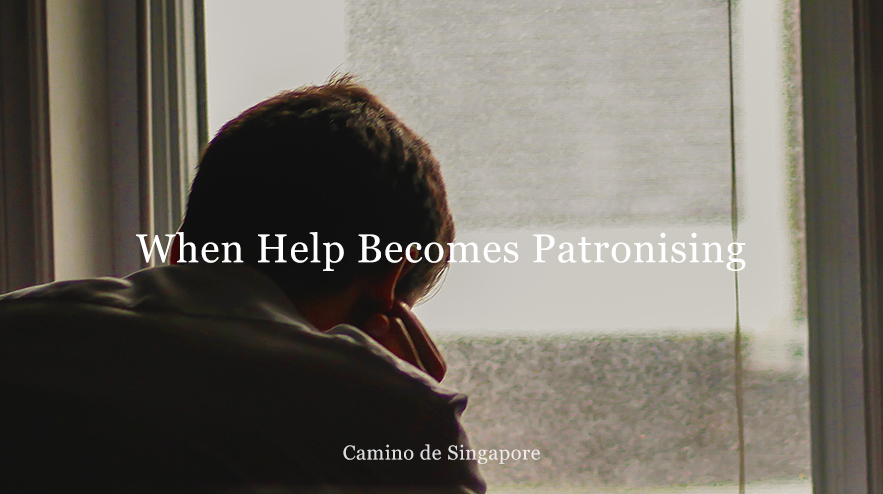No products in the cart.
Would you eat undercooked or spoiled food?
I would not. I had experienced food poisoning before and would not wish it on anyone.
Thus, I was disturbed by some netizens’ responses to news about the quality of catered food provided to foreign workers confined to their dormitories due to the COVID-19 situation.
A common thread that ran through their comments was about gratefulness; that foreign workers should be grateful to have any food at all, and that they should not be picky or choosy, especially during such challenging times.
What I found disturbing from their comments was that not only do they reveal a lack of empathy, but also reveal worrying notions about help and giving.
In this reflection piece, I start by referring to foreign workers. But the point holds true for other vulnerable groups such as low-income families, persons with disabilities, and isolated elderly.
When we help and expect gratitude in return, we are serving our own ego. When we believe we know better on how to help or how help should look like and do not want to accept feedback from the ground, we are being patronising. Then, help becomes less about the vulnerable persons, and more about us. What we want to give and how our help should be received.
With this line of thought, the dignity of the human person is absent. Love is absent. God is absent. They should be interconnected because God is love. Love means recognising and respecting human dignity – the inherent worth and value of the person.
What does dignified help look like? It looks like this: recognising vulnerable persons as experts in their own lives; actively seeking their concerns and acting on feedback to ensure help provided is addressing their needs; and taking ownership of services’ and programmes’ shortcomings, as well as making prudent improvements to the quality of help that we can offer.
In short, treating people like, well, people.
Help should always be provided with dignity, without which any claims to be serving God are mere hypocrisy.
Related Stories
Jorain Ng is part of the Advocacy and Research team at Caritas Singapore. She thinks she should have been born in the groovy 80s and can often be found listening to Abba and Bee Gees songs.

